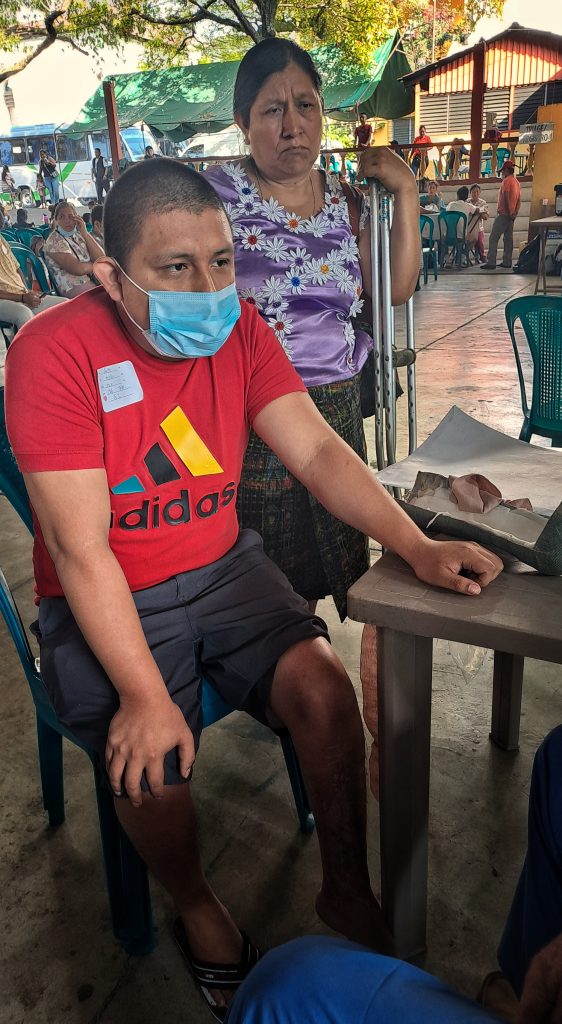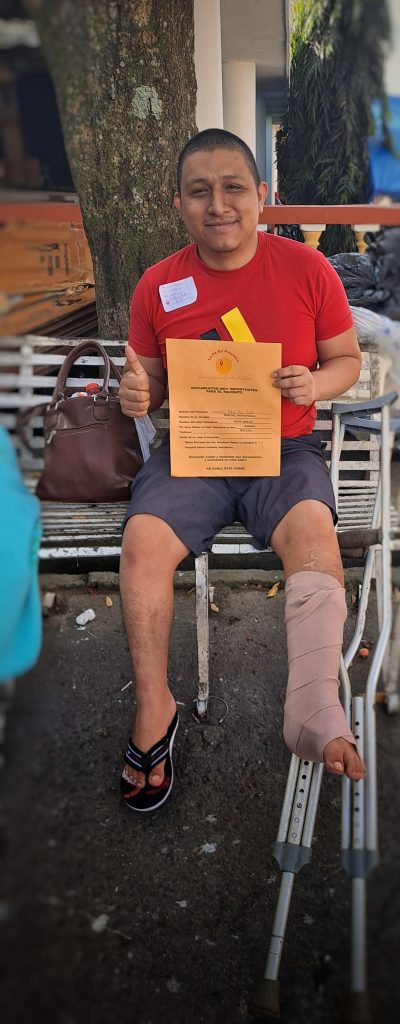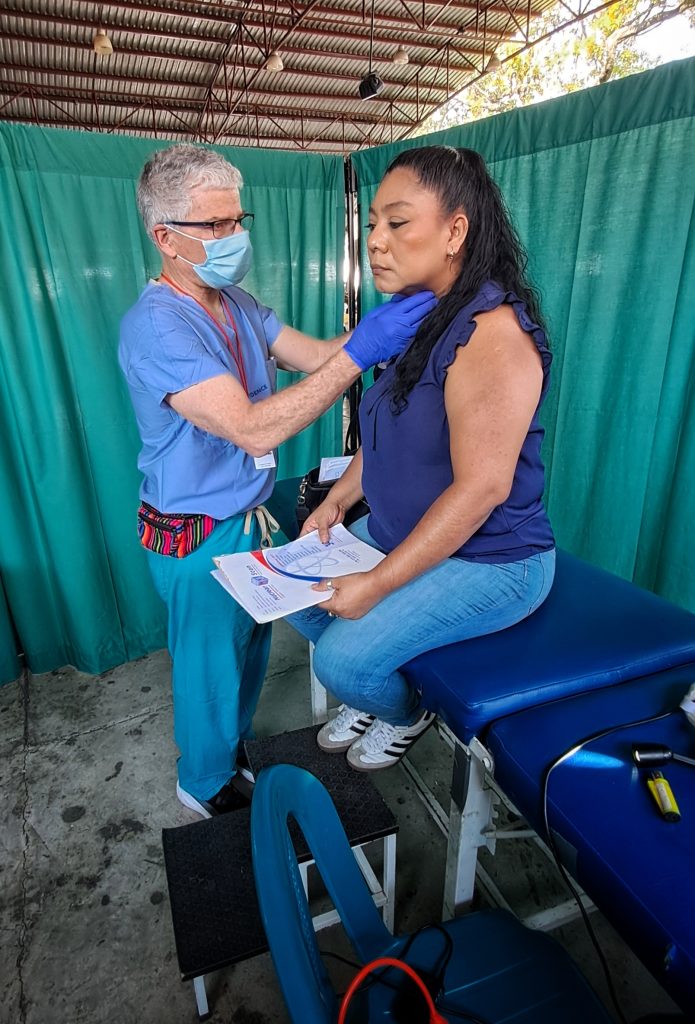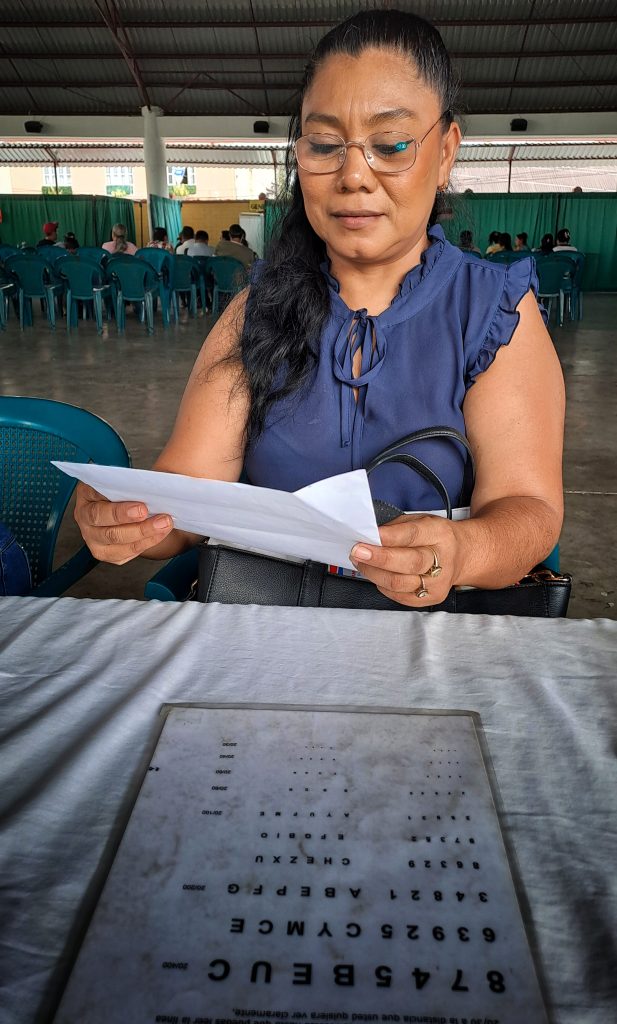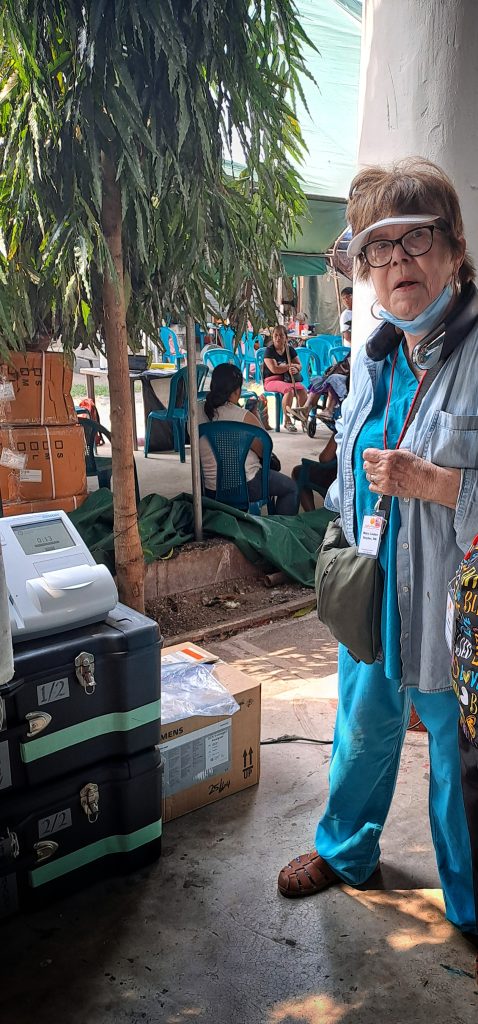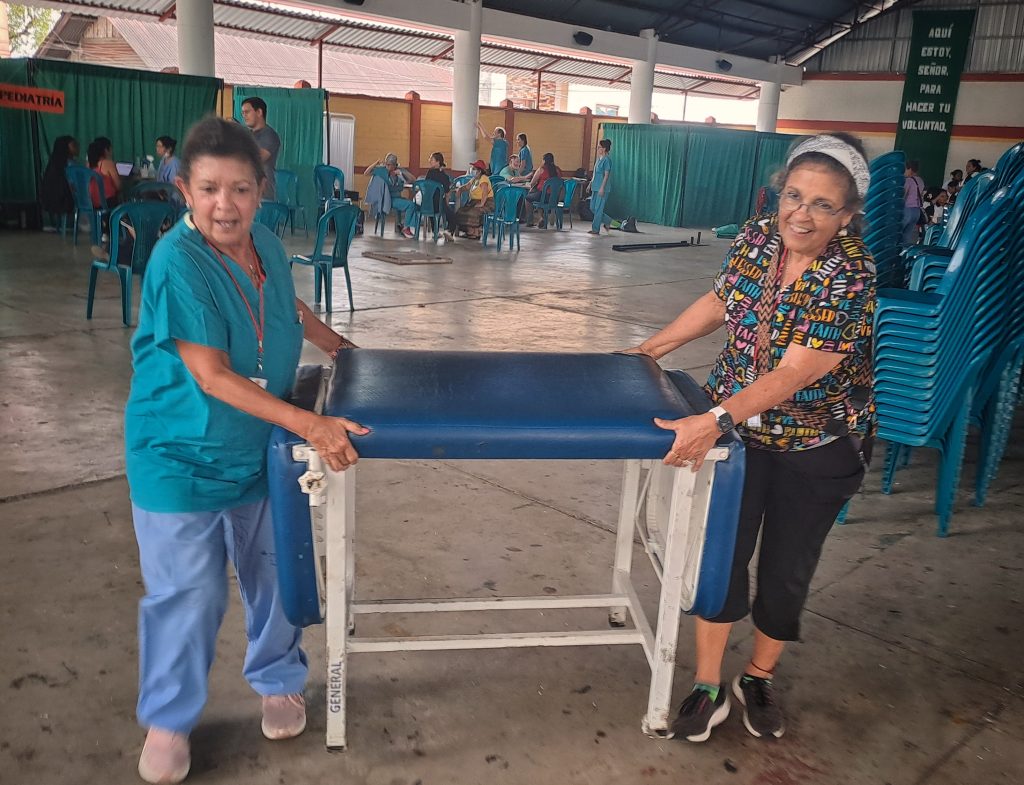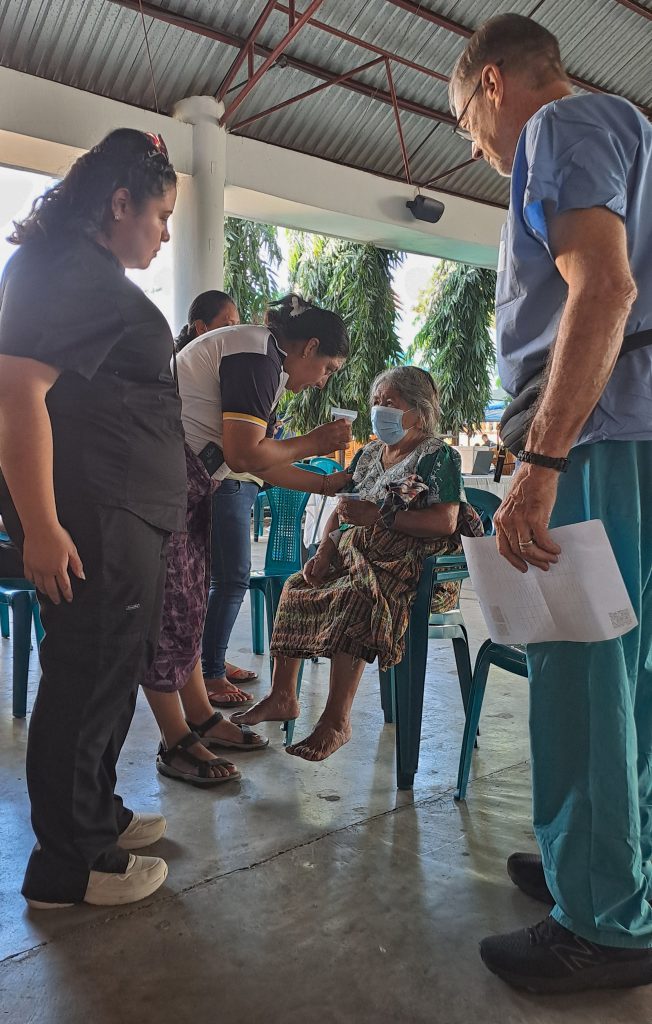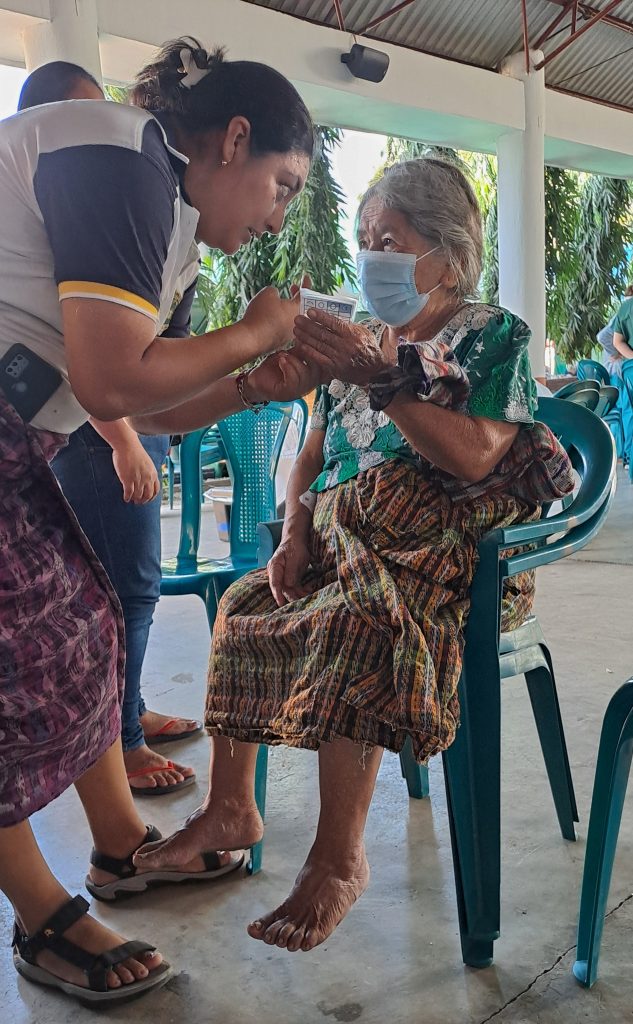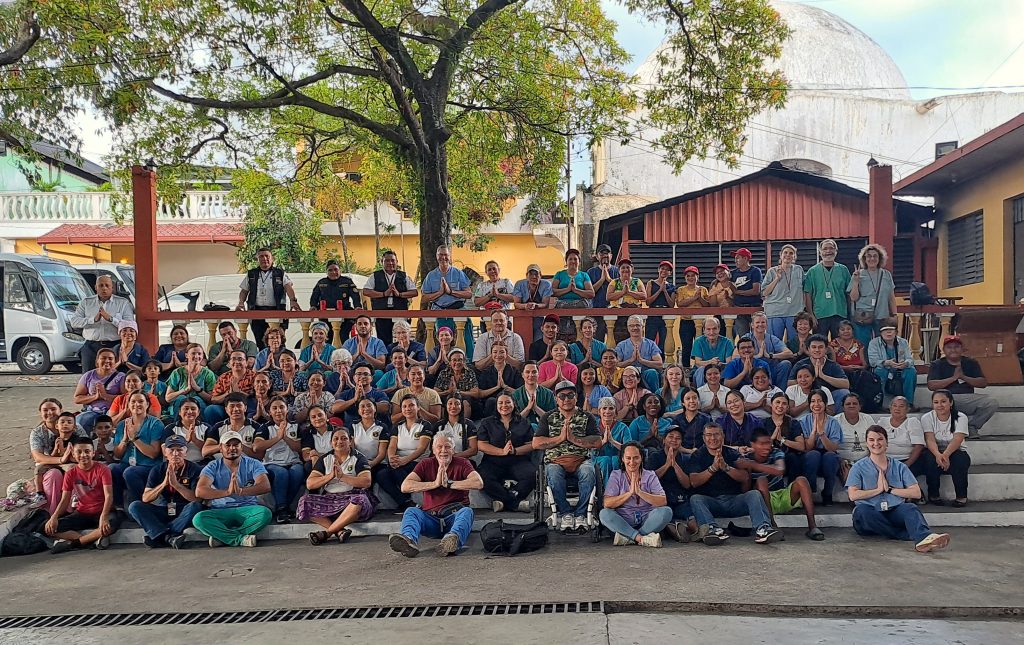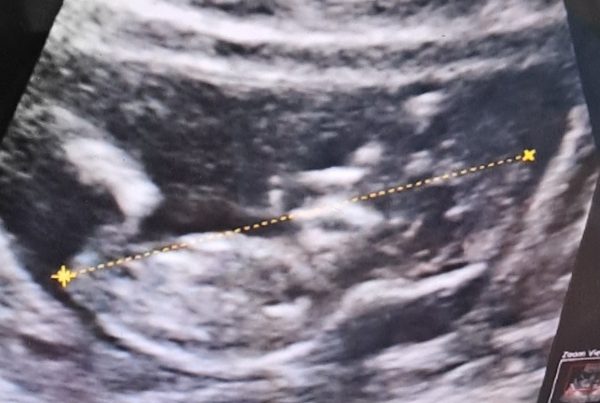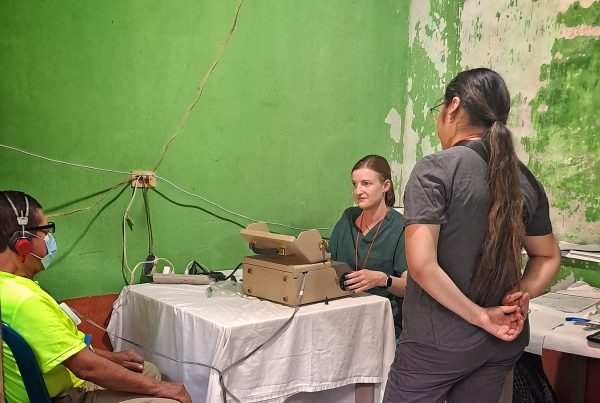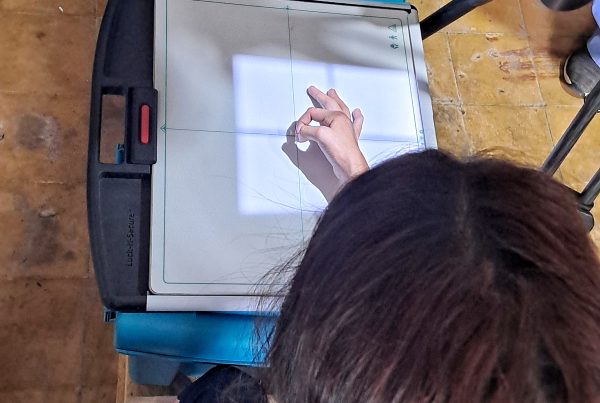Dear Diary,
One of the first patients of the day today is Daniel, he is 25 and walks in using crutches, accompanied by his mother, unaware he is about to get some pretty harsh advice. He was in an accident three years ago and broke his leg to the point where they needed to insert a plate in order for the bone to heal. Unfortunately his body rejected the plate but it wasn’t detected until it was too late. It does not take someone who spent a week in an X-ray department to tell that the bones in his leg are seriously compromised, the bone is infected and deteriorated. Local doctors have been telling him to keep up hope that it can get better, our team does not believe so. Daniel is understandably taken aback by our doctor’s suggestion to consider amputation and fitting with a prosthesis. He has been using crutches for three years and there is no reason to believe the bone will heal, a prosthetic would give him back his mobility. He is young and has a whole active life ahead of him. He recovers from the news marvellously, it’s smile and fist bumps as we say our goodbyes and he heads over to the referral department to set up an appointment to consult with a specialist about his options, including amputation. One of the volunteers whom is near and dear to our heart could not make it on the trip this year, he is a phenomenal example of the level of mobility that can be achieved with prostheses. His wife is here with us and she spends time with Daniel, showing him how her and her husband have seen the world together, how the prostheses did not slow them down. Daniel is in even better spirits after that, he is a brave kid, quite confident too. We part ways and herecommends we keep and eye out for him, as he will be President one day!
I spot a known face from across the room, Yesenia is back, she had been here on day three with her daughter, the college student whom was fitted for two hearing aids. This is a common occurrence, where parents come in for their children’s appointments and later take care of themselves. She is 46 and an example of the all around care patients receive during their visits, she starts the day in ENT, moves on to General medicine, and stops by Pharmacy and Laboratory. She shows me a picture of her family, all female. She is a widow with three daughters and one granddaughter. She is not looking for pity, she is bravely facing her difficulties. I am glad that in some small way we can help alleviate them, today she receives confirmation that she is on the appropriate thyroid medication, her dosage is adjusted, and we even find some reading glasses that almost measure up to her high aesthetic standards!
Motherhood has been a common theme throughout the week, it is deeply ingrained in the culture, an expectation for every woman. Hence it is a big deal to meet Sabina. She is 33 and never had her period, the Gynaecologist calls it total ovarian failure. She came to clinic yesterday but needed to wait for the results of some blood work before the team could confirm the results today. As outsiders, we can’t fully understand the culture, but we do have some inkling of how bad this news is for her. It takes courage to be happy and to do so one must adjust as best they can to circumstances in life, Sabina is inspiring, she explains “there are other ways in life to find happiness”, once again a lesson for us all.
It’s not easy to adjust to the idea of a different life than one pictured, or to try new things for that matter. This week the team have also been exploring new tools and tests. One of those is the A1C test, which allows to measure a patient’s blood sugar over the past three months, the Lab team has been using it for the first time this week. It is another innovation to drive efficiency, we can tell patients on the spot that they need to make some life adjustments if their A1C level is too high to allow them to access needed surgery. Else they would have to find out later, when it is potentially too late to adjust and they are not deemed an appropriate candidate for surgery. With each step toward innovation and efficiency we can improve and increase the help provided, which is our ultimate goal. On that note, this week we were able to serve 967 patients in various ways, for a total of 1264 clinic visits.
Today is the last day, so we pack up at the end of it, but before we get to that I meet Sebastiana she is 95 and does not speak any Spanish, only K’iche’. This beautiful tiny little woman has shown up in her wonderous traditional garb, barefoot, alone, at 95. Her feet are flat, as in she is very likely used to being barefoot and much more comfortable than she would be with shoes. The team evaluates her health and determines she just needs some blood pressure medication and pain killers for her joints, we should all be so lucky to get to 95 like that. When she reaches my favorite line of defence, Pharmacy, I am lucky enough to witness the spectacle. The clinic Pharmacist explains the medication and the dosages in English to the first translator, whoexplains it in Spanish to the second one, who explains it in K’iche’ to Sebastiana. Even more entertaining is that the last translator is local and knows the patient’s family, she decides she will drop by her home later to better explain the instructions to the family directly. It is one big, beautiful community here.
I ask the translator for a local sign of appreciation, some inspiration for the final group photo. She explains that joining hands in front of your chest is a sign of gratitude, matiosh, thank you. Matiosh to each individual that was a part of the experience, the people supporting us from back home, the children in the clinic neighbourhood showering us with their love and attention, the staff, the volunteers, the patients and their families, matiosh.
As the experience winds to a close I wonder if I can apply the lessons learned to my own life:
Could I stand back up in defiance if life dealt me a hard hand?
Can I be disciplined enough to handle “life admin” and plan appointments to take care of my health?
Can I appreciate and rediscover life’s wonders, such as hearing someone’s voice?
Can I see the world through the eyes of a child, look for entertainment when I’m bored, boldly speak without fear of being silenced, smile when smiled at?
Can I dedicate my time and talents in service to others?
The Hallmark response is “yes, just you watch me”, the honest answer is I don’t know if I can do all that, certainly not all the time, but I am going to try. Bit by bit,taking example from the people I have been blessed to share this experience with, I can make an effort to move in the right direction.
Ciao until next time.
Celestina
Team 884


